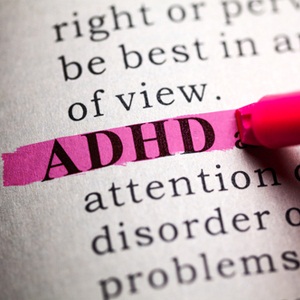
But experts also differ on whether the shifts in thinking about this neurodevelopmental disorder will be a good thing.
Dr James Norcross, a child and adolescent psychiatrist at the University of Texas Southwestern Medical Center at Dallas, outlined the major changes in the fifth edition of the Diagnostic and Statistical Manual of Mental Disorders (DSM-5), which is published by the American Psychiatric Association.
"One is the latest age that someone can have the onset of symptoms," Norcross explained. "In the current version, it's seven years. That will be changed to 12 years in the DSM-5, which may make things easier for adults and adolescents, because they'll be able to better recall some of the challenges that may have occurred."
More people to be diagnosed
Another big change that Norcross expects is that those over 17 will only have to meet five criteria, instead of six, to be diagnosed with ADHD.
"This could increase the number of adults [who] are diagnosed because the criteria were largely developed for children, and they're not necessarily things we see in adults," he explained. For example, one of the criteria for hyperactivity has been squirming in your seat.
The last significant change is that ADHD will no longer be grouped with conduct disorder and oppositional defiant disorder. Instead, it will be grouped with neurodevelopmental disorders.
"They're trying to group disorders by similar pathology, and this is a better description of ADHD. More and more, it's being shown to be a biological process," Norcross explained.
Overall, Norcross said he thought the changes were positive and that they might remove some of the stigma that's been attached to an ADHD diagnosis.
Read: Is ADHD a disease or not?
'Concern' of overdiagnosis
However, another expert said the changes could lead to over diagnosis of ADHD, and a subsequent jump in the prescribing of stimulants to treat the disorder.
"In trying never to miss a case, they may mislabel millions of people with a disorder they don't have. Everyone has problems with distractibility, but when ADHD is real, it starts early, it's intense and it's unmistakable," said Dr Allen Frances, chair of the task force for the DSM-4 and former chair of psychiatry at Duke University School of Medicine in Durham, NC. The fourth edition of the DSM has been in force since 1994.
"We're already over diagnosing ADHD. Almost 20% of teen boys get the diagnosis of ADHD, and about 10% of boys are on stimulant drugs. We don't need to make it easier to diagnose ADHD," Frances said.
Read: More ADHD kids given drugs than therapy
His biggest concern is that by expanding the diagnosis of ADHD, more children and adults will be put on stimulant medications, such as Adderall, Ritalin, Concerta and Vyvanse.
"In the short-term, performance is improved, which makes it highly desirable. In the long-run, there's a risk of addiction. Would you think it's OK for people to take steroids to improve their tennis game? It's pill-pushing," Frances said.
"If we decide as a society that the use of stimulants is good, it shouldn't be done through a fake medical diagnosis. Making it a medical diagnosis is what's wrong here," Frances explained. "I'm not against these drugs being legal, but I'm against the backdoor medical diagnosis."
Another concern is that people who have other psychiatric disorders may be wrongly classified as having ADHD.
"Every single psychiatric disorder has distractibility as part of it. If you misdiagnose someone with bipolar disorder as having ADHD and put them on stimulants, you'll throw them into mania," he cautioned.
Norcross agreed that ADHD diagnosis in adults needs to be done very carefully. But, he said the traits of inattention and disorganisation often do continue into adulthood. And, for teens and young adults, ADHD can have an impact on education and employment opportunities.
Read more
Ask the ADHD Expert a question
A personal story of discovering ADHD in a childHow homeopathy can help those with ADHD
An alternative way to look at ADHD and its treatment
Image: ADHD, Shutterstock




 Publications
Publications
 Partners
Partners















